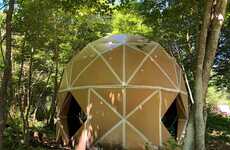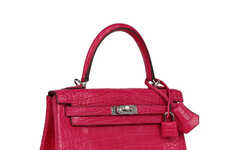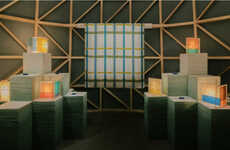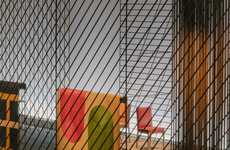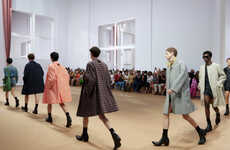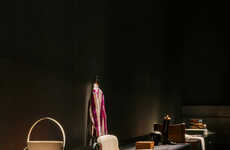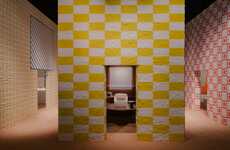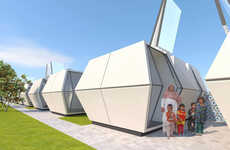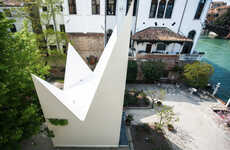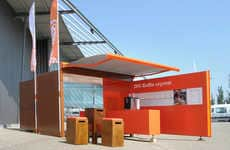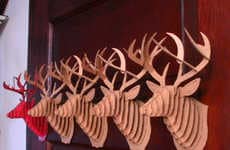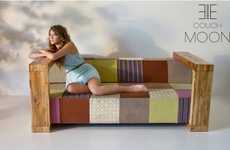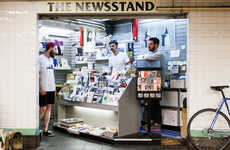
Hermes + Shigeru Ban Pavilion is an Eco-Friendly Design
Katherinev123 — December 4, 2011 — Eco
References: japantrends & brandingmagazine
A joint project between the French fashion house Hermes and ecological architect Shigeru Ban, the Hermes + Shigeru Ban Pavilion is a special exhibit part of Tokyo's Design Tide Exhibition.
The project is branded by Hermes to promote its line of home products and is a modular pop-up structure that can be completely taken apart and put back together. Shigeru Ban, a world renowned Japanese architect who specializes in environmentally friendly design and has created a number of recycled cardboard homes and temporary shelters, has made the Hermes + Shigeru Ban Pavilion completely out of paper, something that is his signature.
Inside the luxury pop-up structure, furniture and other home design objects by Hermes are featured. Visitors were encouraged to walk around and sample the space.
The project is branded by Hermes to promote its line of home products and is a modular pop-up structure that can be completely taken apart and put back together. Shigeru Ban, a world renowned Japanese architect who specializes in environmentally friendly design and has created a number of recycled cardboard homes and temporary shelters, has made the Hermes + Shigeru Ban Pavilion completely out of paper, something that is his signature.
Inside the luxury pop-up structure, furniture and other home design objects by Hermes are featured. Visitors were encouraged to walk around and sample the space.
Trend Themes
1. Modular Pop-up Structures - There is an opportunity for companies to create modular pop-up structures that can be easily assembled and disassembled, providing flexibility for various events and exhibitions.
2. Eco-friendly Design - There is potential for businesses to focus on eco-friendly design, using sustainable materials and minimizing environmental impact in their products and structures.
3. Luxury Home Products - Companies can explore the luxury home products market, creating high-end furniture and design objects that cater to upscale consumers.
Industry Implications
1. Architecture - The architecture industry can embrace modular pop-up structures and incorporate eco-friendly design principles to create innovative and sustainable buildings.
2. Event Planning - Event planning companies can utilize modular pop-up structures to offer unique and customizable event spaces, attracting clients who value flexibility and sustainability.
3. Luxury Retail - Luxury retail brands can expand into the home products market, offering high-quality furniture and design objects that appeal to affluent consumers seeking exclusive and stylish products.
5.4
Score
Popularity
Activity
Freshness

